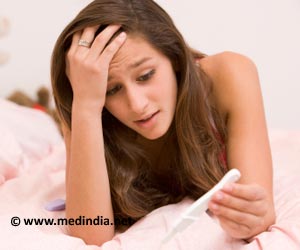Younger patients treated for breast cancer do not enjoy quality of life as they could experience premature menopause, extreme psychological distress and infertility.

The study points to the need for oncologists to let these younger patients know from the beginning of their therapy what may happen to them after it's finished, said study lead author Dr. Patricia Ganz, director of cancer prevention and control research at UCLA's Jonsson Comprehensive Cancer Center.
"We know that educating and providing younger breast cancer patients with information about what they might experience once their treatment ends is very helpful," said Ganz, who has been conducting research on quality of life after cancer treatment for 25 years. "If they know what to expect, their anxiety level will be greatly reduced. Up to now, oncologists have not done a good job of preparing these women for what will come."
Reducing anxiety is crucial, Ganz said, as pre-clinical studies have shown that stress can promote cancer growth and spread in animal models. A study by Jonsson Cancer Center researchers published in 2010 in Cancer Research showed that chronic stress acted as a sort of fertilizer that fed breast cancer progression, significantly accelerating the spread of disease.
The need to prepare younger breast cancer survivors for any adverse effects they may experience and seek ways to address those problems is vital as more and more younger women are surviving their cancer diagnosis due to improvements in early detection and treatment, Ganz said.
"A cancer diagnosis can challenge younger women with issues that don't impact older patients," she said. "A younger breast cancer patient may have young children and may be worried about living to raise them to adulthood. A younger breast cancer patient may not have had children yet and may be faced with infertility following her treatment or may return to the dating scene following treatment. We need to find ways to reduce the stress and anxiety that dealing with these issues may create."
Advertisement
The three-year, $700,00 grant will focus on making life after breast cancer better for women aged 21 to 45 in Los Angeles County by funding a program designed to meet their unique needs, Ganz said. UCLA is one of seven organizations nationwide to receive funding for this focus on young breast cancer survivors. The resources and strategies developed in this diverse and populous region will serve as a model for other organizations across the country.
Advertisement
"These three health systems provide breast cancer services for a substantial number of ethnically diverse, newly-diagnosed women with breast cancer under 45 years old. They see about 225 new cases annually," Ganz said Ganz. "We estimate that there are hundreds of young breast cancer survivors who are being followed in these institutions, who will directly benefit from the programs that we will develop."
Ganz anticipates such services might include a regional resource with information and assistance in obtaining fertility preservation services, a website that hosts specialized information about community and hospital resources for younger women with breast cancer, as well as specialized programs to meet the unique psychosocial needs and concerns of this population.
Ganz also has received a grant from the Susan G. Komen foundation that is testing the practice of mindful awareness, a form of meditation, as a way to combat stress and anxiety in younger breast cancer patients.
For the Journal of the National Cancer Institute study, Ganz and her team did a review of studies that focused on overall quality of life, psychosocial effects, menopause and fertility-related concerns and behavioral outcomes related to weight gain and physical activity. The 28 studies reviewed were published between January 1990 and July 2010.
Ganz said that weighing therapies with the thought of quality of life after treatment in mind may help reduce some of the issues these younger women face.
"By tailoring adjuvant therapy regimens and giving cytotoxic therapy only to those who may benefit, we can mitigate some of these side effects, but the long life expectancy for these young women also provides a window of opportunity for cancer prevention and health promotion activities," the study states.
Source-Eurekalert














